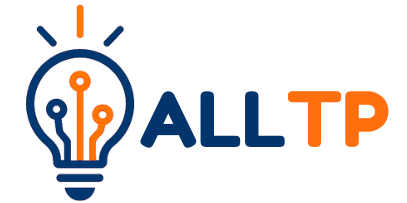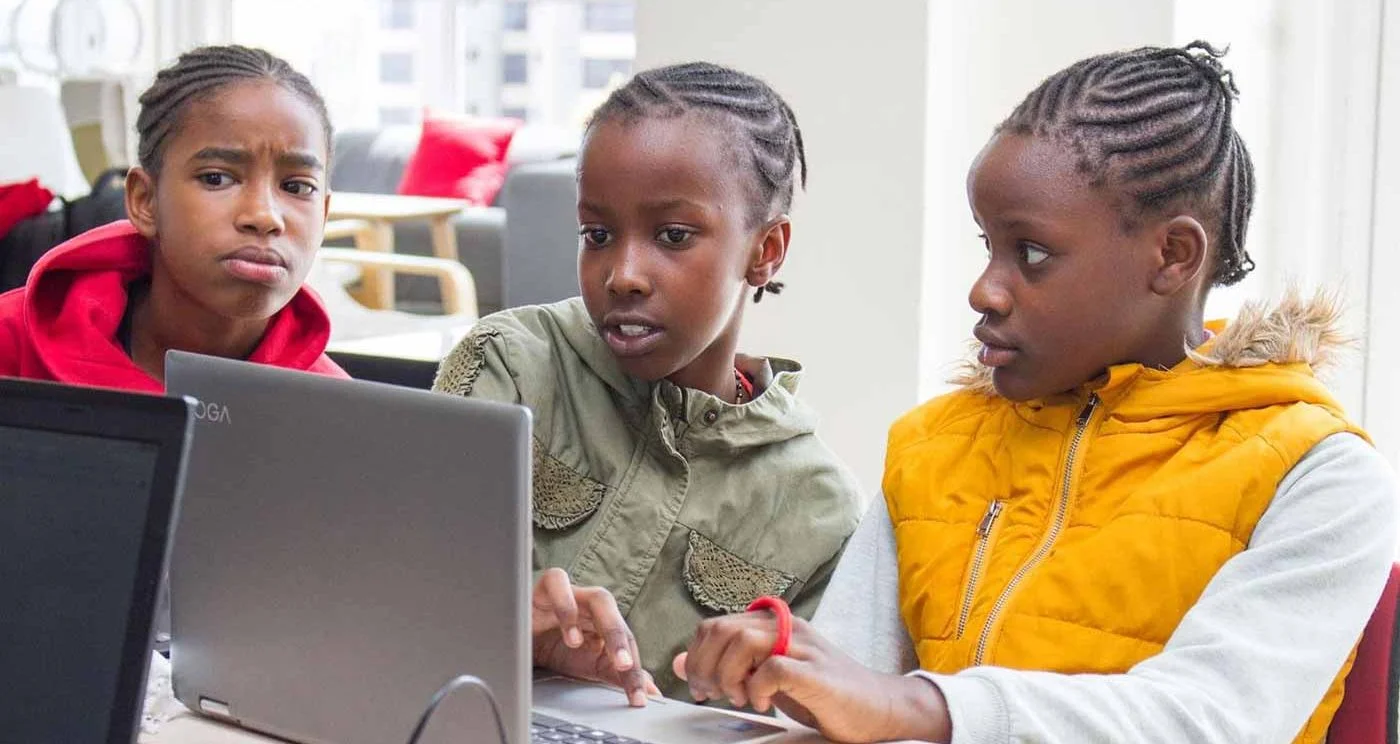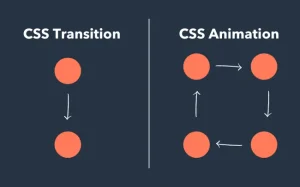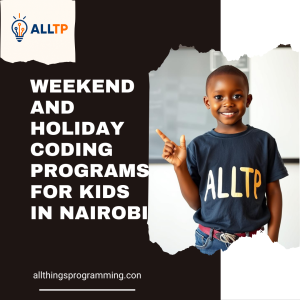Forget swimming or piano, today’s must-have skill is coding. In Nairobi, a city fast emerging as the tech hub of East Africa, parents are rethinking what it means to give their children a head start. As Kenya continues to invest in digital infrastructure and innovation, technology is no longer a niche interest; it’s a national priority.
Whether through weekend programs, online platforms, or local bootcamps, now is the perfect time to introduce your child to the world of coding. Give your child a head start with our coding for kids program. Enroll them in our trusted online bootcamp and let them start creating, not just consuming, technology.
From mobile banking platforms like M-Pesa to government-supported digital literacy programs, the rise of technology in Kenya has been swift and transformative. Nairobi, often dubbed the “Silicon Savannah,” is home to countless startups, innovation hubs, and coding accelerators.
This surge has created a ripple effect, pushing parents to see digital literacy not just as an advantage, but as a necessity.
More parents in Nairobi are enrolling their children in coding classes to prepare them for a tech-driven future. With the world moving increasingly online, coding is becoming the new language of opportunity, one that opens doors to creativity, critical thinking, and 21st-century careers.
1. The Digital Revolution in Kenya
Over the past decade, Kenya has undergone a remarkable transformation, embracing technology at every level of society. At the heart of this shift is Nairobi, widely referred to as the “Silicon Savannah” a vibrant tech ecosystem that has birthed startups, innovation hubs, and global recognition. From fintech pioneers like M-Pesa to incubators like iHub and Nailab, the city is proving that Africa can lead in digital innovation.
Recognizing the importance of future-ready skills, the Kenyan government has made bold moves to integrate ICT and STEM into the national education agenda. Through initiatives like the Digital Literacy Programme (DLP), schools across the country are being equipped with tablets, digital content, and teacher training to promote early tech exposure.
Central to this shift is the Competency-Based Curriculum (CBC), which places strong emphasis on practical, real-world skills. Digital literacy is no longer optional, it’s woven into classroom activities from as early as Grade 1. Children are not just learning how to use computers; they’re beginning to understand how technology works and how to create with it.
This growing national focus on tech education is prompting parents in Nairobi to look beyond the traditional classroom and seek supplementary learning opportunities, particularly in coding, robotics, and app development.
2. Why Coding Matters for the Next Generation
In today’s digital world, coding is more than a tech skill—it’s a core literacy. Just as reading and math prepare children for academic success, coding equips them for a rapidly evolving job market where automation, artificial intelligence, and software development are driving nearly every industry.
In the spirit of Coding Kenya, a grassroots push to empower young minds with digital skills, early coding education is now seen as a national investment in future innovation. It’s about equipping children with the tools they need to succeed and lead in tomorrow’s economy.
As a foundational skill, coding teaches more than how to build apps or websites. It sharpens critical thinking, logic, and problem-solving, encouraging children to break down complex tasks and think systematically. Even failure becomes part of the learning process—debugging and refining code fosters resilience and patience.
Coding also sparks creativity. Kids can design their own games, animations, and interactive stories, allowing them to be inventors, not just consumers, of technology. With tools like Scratch, Blockly, and Python-based platforms tailored for young learners, coding becomes an engaging, hands-on activity.
Perhaps most importantly, early exposure builds confidence. When children see that they can control technology, rather than be intimidated by it, they develop the adaptability needed to thrive in a tech-driven world. For Nairobi parents, giving kids a head start in coding is about preparing them not just to use digital tools, but to shape the future with them.
3. What’s Driving Nairobi Parents to Act Now
A growing number of parents in Nairobi are no longer waiting for schools to take the lead, they’re actively seeking out ways to equip their children with coding skills. Several key factors are fueling this shift.
First, there’s increased awareness of global tech trends. As technology continues to dominate industries worldwide, Kenyan parents are recognizing that coding is not just for Silicon Valley, it’s becoming a universal skill. Whether it’s the rise of AI, blockchain, or digital marketing, understanding the basics of code is increasingly seen as a gateway to opportunity.
Second, accessibility has improved dramatically. Nairobi is now home to a growing number of coding schools and bootcamps specifically tailored for kids. Programs like All Things Programming Bootcamp and other after-school platforms offer hands-on training in web development, robotics, and app design. Online platforms like Scratch and Tynker are also making it easier for parents to support learning from home.
The influence of homegrown tech heroes has also played a powerful role. Innovators like Juliana Rotich, co-founder of Ushahidi, and Mark Kamau, known for his work in user experience design across Africa, are inspiring a new generation of digital thinkers. Their success stories show that with the right skills, Kenyan youth can build tools that change the world.
Finally, the COVID-19 pandemic significantly accelerated digital adoption. With schools shifting online and families relying more on tech, many parents saw firsthand how essential digital literacy had become. It was a wake-up call: tomorrow’s success would belong to those who could create, not just consume, technology.
In response, Nairobi parents are embracing coding as a proactive investment in their children’s futures ensuring, they don’t just keep up with the world, but lead it.
4. Top Benefits Parents Are Seeing
Parents in Nairobi who have enrolled their children in coding classes are already witnessing powerful results, both in and out of the classroom.
One of the most noticeable changes is improved academic performance, especially in math and logic-based subjects. Coding strengthens a child’s ability to think analytically and solve problems step by step, which translates directly to subjects like mathematics and science. Teachers often report increased focus, perseverance, and reasoning skills in children who code.
Another key benefit is the quality of screen time. Instead of passively watching videos or playing games, kids are now creating their own apps, animations, or websites. This shift transforms screen time into a productive, imaginative experience that encourages exploration and innovation.
Coding also opens doors to exciting opportunities for scholarships, tech competitions, and global exposure. Nairobi-based students have participated in international hackathons, coding olympiads, and exchange programs, opportunities that not only showcase their talents but also build networks for future careers.
Lastly, coding builds self-esteem and independence. As children complete their own tech projects, from building a simple game to launching a basic website, they experience a deep sense of achievement. They learn to take initiative, troubleshoot errors, and present their ideas with pride.
For many parents, these benefits go far beyond learning to code, they represent a mindset shift, preparing their children to thrive in a world shaped by technology.
5. Popular Coding Schools and Programs in Nairobi
Nairobi now hosts a variety of reputable coding programs tailored to children and teens, ranging from weekend bootcamps to year-round mentorship. Here are some of the most notable options:
• All Things Programming
A highly rated online coding program designed for children aged 6 to 17. All Things Programming focuses on project-based learning and mentorship, offering courses in game development, web design, mobile apps, and beginner-friendly coding languages like Scratch and Python.
Their curriculum is hands-on, creative, and designed to help children build real-world tech skills from an early age. The bootcamp is known for its engaging instructors and flexible learning options for both beginners and advanced learners.
Types of Courses Offered
- Game Development: Platforms like Scratch, Roblox Studio, Python Pygame, or JavaScript.
- Web & Mobile App Design: HTML/CSS, JavaScript, Python, and Flutter for simple apps.
- Robotics & IoT: Courses using Arduino, Raspberry Pi, robotics kits, AI simulations, embedded electronics.
- Digital Art & Multimedia: Coding integrated with graphic/interface design and storytelling.
- AI & Chatbot Development: Beginner-level workshops in some camps modeling WhatsApp or ChatGPT interfaces.
• Digikids
Operated by Strathmore University’s iLab Africa, Digikids offers holiday and weekend coding camps for ages roughly 6–17. Courses focus on Scratch, Python, JavaScript, and web development, with structured modules and hands‑on project work.
• MindHub
Designed for ages 6 to 15, MindHub uses gamification and project‑based learning, with small-group modules based on age brackets. Younger children start with block programming and algorithmic thinking, progressing to web and mobile projects, Python, and game development for older teens.
• CodeYetu
A social enterprise teaching children aged 6–16 years, CodeYetu offers after-school classes, virtual one-on-one lessons, and in-person holiday bootcamps. Each quarter they also host “Code for Charity” hackathons to bring students from across Kenya together.
• Teckid Kenya
Teckid delivers online programs aligned with school grades (Grades 1–12). Students work with Python and JavaScript as well as foundational web development, mobile apps, digital art, and digital ethics. Certificates and mentor support are included, plus eligibility for competitions
• Kidd‑O Skillkit
In collaboration with Mechatron Robotics, Kidd‑O Skillkit offers coding and robotics training for children aged 8 and above. Courses include IoT, Arduino, embedded systems, AI, and machine learning, delivered in both online and kit‑based project formats.
• African STEM Girl (April Code Camp)
This program, tailored to ages 7–17, runs hybrid classes, with both in-person sessions at Nairobi malls and online instruction. Projects include web development, simple AI (chatbots), and UI design, with strong mentorship and small class sizes.
Online vs In‑Person Formats
Online Programs
- Teckid Kenya and African STEM Girl run fully virtual platforms, ideal for flexibility and sustained mentorship over time.
- CodeYetu offers one-on-one virtual lessons alongside occasional in-person sessions.
In‑Person & Hybrid
- Digikids and MindHub host holiday bootcamps and weekend classes in Nairobi, blending project-based teamwork with instructor-led learning.
- African STEM Girl’s April Code Camp combines mall‑based physical training hubs with online follow-ups.
Each of these programs combines project-based learning with flexible formats suited to different schedules and goals. Whether parents prefer structured holiday workshops or long-term mentorship, Nairobi’s coding scene now offers diverse and high-quality options.
6. Testimonials from Nairobi Parents
As coding programs grow in popularity across Nairobi, many parents are speaking up about the impact they’re seeing in their children’s lives, academically, socially, and even emotionally.
“I enrolled my son and now he’s building a game with his classmates.”
This is how Mary A., a parent from Kilimani, describes her son’s transformation after joining All Things Programming. “He used to spend hours playing mobile games. Now he’s learning how to design his own,” she says, adding that his focus and confidence have improved significantly.
Another parent, James K. from Westlands, shared how coding changed his daughter’s outlook on learning: “Before, she was shy and hesitant to speak up in class. Now she proudly presents her app prototypes and even explains her code to adults.”
For Fatima N., whose son joined an online Python course during the COVID-19 lockdown, the change was more academic: “His performance in math has gone up, and he’s more disciplined when doing schoolwork. Coding helped him think in steps and manage his time better.”
These testimonials reflect a growing realization: coding classes are not just teaching Nairobi’s children how to code, they’re helping them grow into confident, curious, and capable problem-solvers ready for the future.
7. How to Choose the Right Coding Class
With the growing number of coding programs available in Nairobi, choosing the right one for your child can feel overwhelming. To ensure a meaningful learning experience, here are the key factors every parent should consider:
1. Look for Age-Appropriate Content
Not all coding classes are created equal. Young children (ages 5–9) do best with visual, block-based platforms like Scratch or Blockly that focus on storytelling and logic. Older children (ages 10+) may be ready for text-based coding languages like Python, HTML/CSS, or JavaScript. Make sure the curriculum is designed with your child’s age, interests, and learning style in mind.
2. Prioritize Engaging, Supportive Instructors
Great instructors make all the difference. Look for programs with trained, enthusiastic educators who understand how to communicate with kids and maintain a fun, safe learning environment. Ask whether instructors provide one-on-one support and how they handle students who fall behind or get stuck.
3. Choose Project-Based Learning
Kids learn best by doing. The most effective programs use hands-on projects, like building games, creating animations, or designing websites, to help kids apply what they’re learning. This approach keeps students motivated and gives them something to showcase at the end of the class.
Questions to Ask Before You Enroll:
- Is the course content age-appropriate and beginner-friendly?
- What programming languages or tools will be used?
- Will my child build actual projects, or is the class mostly theory?
- Who are the instructors, and what is their background in teaching kids?
- Is the program online, in-person, or hybrid and which format works best for my child’s learning style?
- Are there opportunities for feedback, mentorship, or progression to advanced levels?
4. Check for Certified or Experienced Educators
Experience matters, especially when teaching coding to children. Look for instructors or institutions with certifications, strong reviews, or partnerships with recognized education platforms. Some programs are affiliated with universities, EdTech companies, or global coding initiatives, which is a great indicator of quality.
Choosing the right class isn’t just about teaching code, it’s about nurturing a lifelong love for learning, problem-solving, and innovation. With the right guidance, your child can go from curious beginner to confident creator in just a few weeks.
In conclusion, Nairobi parents are increasingly recognizing that coding is no longer an optional skill, it’s essential. As Kenya continues to embrace technology across every sector, preparing children for a digital future is becoming a top priority for forward-thinking families.
From improved academic performance and creativity to exposure to global tech opportunities, the benefits of coding go far beyond the computer screen. More importantly, these programs are shaping confident, curious, and resilient problem-solvers, traits that are vital for thriving in the 21st century.
The future is being written in code. Don’t let your child be left behind. Enroll them in our trusted coding school for kids bootcamp today. Whether they’re just starting out or exploring more advanced challenges, our program offers coding for beginners that makes learning fun, interactive, and age-appropriate.




